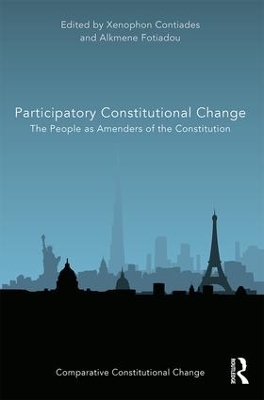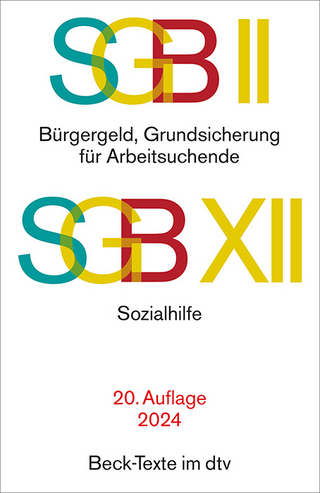
Participatory Constitutional Change
Routledge (Verlag)
978-1-4724-7869-6 (ISBN)
This book explores the recent trend of enhancing the role of the people in constitutional change. It traces the reasons underlying this tendency, the new ways in which it takes form, the possibilities of success and failure of such ventures as well as the risks and benefits it carries. To do so, it examines the theoretical aspects of public participation in constitutional decision-making, offers an analysis of the benefits gained and the problems encountered in countries with long-standing experience in the practice of constitutional referendums, discusses the recent innovative constitution-making processes employed in Iceland and Ireland in the post financial crisis context and probes the use of public participation in the EU context. New modes of deliberation are juxtaposed to traditional direct-democratic processes, while the reasons behind this re-emergence of public involvement narratives are discussed from the aspect of comparative constitutional design. The synthetic chapter offers an overview of the emerging normative and comparative issues and provides a holistic approach of the role of the people in constitutional change in an attempt to answer when, where and how this role may be successfully enhanced. The work consists of material specifically written for this volume, and authored by prominent constitutional scholars and experts in public participation and deliberative processes.
This book explores the recent trend of enhancing the role of the people in constitutional change. It traces the reasons underlying this tendency, the new ways in which it takes form, the possibilities of success and failure of such ventures as well as the risks and benefits it carries. To do so, it examines the theoretical aspects of public participation in constitutional decision-making, offers an analysis of the benefits gained and the problems encountered in countries with long-standing experience in the practice of constitutional referendums, discusses the recent innovative constitution-making processes employed in Iceland and Ireland in the post financial crisis context and probes the use of public participation in the EU context. New modes of deliberation are juxtaposed to traditional direct-democratic processes, while the reasons behind this re-emergence of public involvement narratives are discussed from the aspect of comparative constitutional design. The synthetic chapter offers an overview of the emerging normative and comparative issues and provides a holistic approach of the role of the people in constitutional change in an attempt to answer when, where and how this role may be successfully enhanced. The work consists of material specifically written for this volume, and authored by prominent constitutional scholars and experts in public participation and deliberative processes. .
Notes on Contributors
Acknowledgements
Introduction: Participatory Constitutional Change
Xenophon Contiades and Alkmene Fotiadou
PART I A Synthetic Approach 1. The People as Amenders of the Constitution
Xenophon Contiades and Alkmene Fotiadou
PART II Popular Participation in Constitutional Change: Theoretical and Historical Aspects
2. Constitutional Reform in Europe and Recourse to the People
Paul Blokker
3. A Future for Referendums in the Fifth French Republic?
Jan-Herman Reestman
PART III Lessons from Long Direct-Democratic Experience: The Equilibrium Between Democracy and Constitutionalism in Switzerland and California
4. Participation of Citizens in Constitution-Making. Assets and Challenges - The Swiss Experience
Thomas Fleiner
5. Direct Democracy vs Fundamental Rights? A Comparative Analysis of the Mechanisms that Limit the ‘Will of the People’ in Switzerland and California
Claudia Josi
PART IV New Trends in Popular Involvement: Best Practices and Fatal Mistakes in the Icelandic and Irish Cases
6. The People’s Contribution to Constitutional Changes. Writing, Advising or Approving? – Lessons from Iceland
Björg Thorarensen
7. Bringing People into the Heart of Constitutional Design: The Irish Constitutional Convention of 2012-14
David M. Farrell, Clodagh Harris and Jane Suiter
PART V The Dilemma of Introducing Constitutional Referendums: Luxemburg and Greece
8. The ‘Sudden Eagerness’ to Consult the Luxemburgish People on Constitutional Change
Jörg Gerkrath
9. The Role of the People in Constitutional Amendment in Greece: Between Narratives and Practice
Alkmene Fotiadou
PART VI EU Aspects of Popular Participation: European Integration, National Sovereignty and Direct-Democratic Procedures
10. The Use of Referendums on European Topics in the Integration Process of the European Union
Dario Elia Tosi
11. Sovereignty, Constitutional Identity, Direct Democracy? Direct Democracy as a National Strategy for Upholding the Nation State in EU Integration
Helle Krunke
Index
| Erscheinungsdatum | 25.05.2016 |
|---|---|
| Reihe/Serie | Comparative Constitutional Change |
| Verlagsort | London |
| Sprache | englisch |
| Maße | 156 x 234 mm |
| Gewicht | 453 g |
| Themenwelt | Recht / Steuern ► Allgemeines / Lexika |
| Recht / Steuern ► Arbeits- / Sozialrecht ► Sozialrecht | |
| Recht / Steuern ► EU / Internationales Recht | |
| Sozialwissenschaften ► Politik / Verwaltung ► Politische Theorie | |
| ISBN-10 | 1-4724-7869-X / 147247869X |
| ISBN-13 | 978-1-4724-7869-6 / 9781472478696 |
| Zustand | Neuware |
| Haben Sie eine Frage zum Produkt? |
aus dem Bereich


